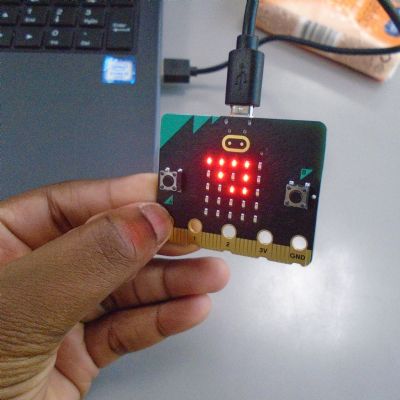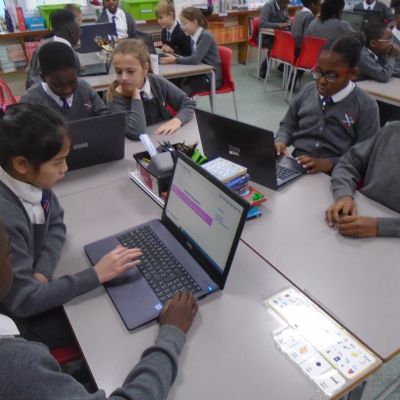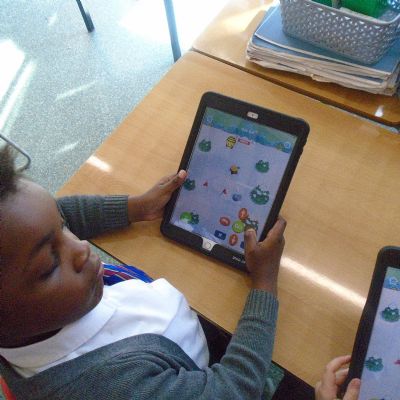Computing
 Intention
Intention
Computing at St Thomas’ intends to develop ‘thinkers of the future’ through a modern, ambitious and relevant education in computing. We aim to equip pupils to use computational thinking and creativity that will enable them to become active participants in the digital world. It is important to us that the children understand how to use the ever-changing technology to express themselves, as tools for learning and as a means to drive their generation forward into the future.
Whilst ensuring they understand the advantages and disadvantages associated with online experiences, we want children to develop as respectful, responsible and confident users of technology, aware of measures that can be taken to keep themselves and others safe online.
Our aim is to provide a computing curriculum that is designed to balance acquiring a broad and deep knowledge alongside opportunities to apply skills in various digital contexts. Beyond teaching computing discreetly, we will give pupils the opportunity to apply and develop what they have learnt across wider learning in the curriculum.
 Implementation
Implementation
Our scheme of work for Computing is adapted from the ‘KAPOW Computing’ Curriculum and covers all aspects of the National Curriculum. This scheme was chosen as it has been created by subject experts and based on the latest pedagogical research. The curriculum aims to equip young people with the knowledge, skills and understanding they need to thrive in the digital world of today and the future. The curriculum can be broken down into 3 strands: computer science, information technology and digital literacy, with the aims of the curriculum reflecting this distinction.
The national curriculum for computing aims to ensure all pupils:
- can understand and apply the fundamental principles and concepts of computer science, including abstraction, logic, algorithms and data representation (Computer science)
- can analyse problems in computational terms, and have repeated practical experience of writing computer programs in order to solve such problems (Computer science)
- can evaluate and apply information technology, including new or unfamiliar technologies, analytically to solve problems (Information technology)
- are responsible, competent, confident and creative users of information and communication technology. (Digital literacy)
 Impact
Impact
Staff: Strong subject knowledge is vital for staff to be able to deliver a highly effective and robust computing curriculum. High quality CPD ensures that all staff have the knowledge, skills and understanding to use digital technologies across the wider curriculum.
Pupils should leave our school equipped with a range of skills to enable them to succeed in their Secondary education and can be active participants in the ever-increasing digital world. Pupils to meet the end of Key Stage expectations outlined in the National Curriculum for Computing.







